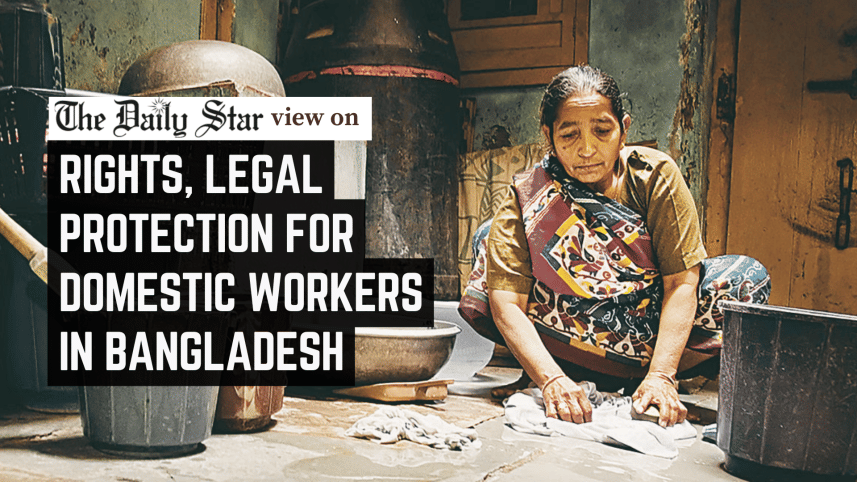Bring domestic workers under labour law

We cannot stress enough the importance of improving the condition of domestic workers. Despite being indispensable to the functioning of countless households, these workers, mostly female or child, still remain outside the legal framework and vulnerable to exploitation. Currently, 47 sectors are covered under the Bangladesh Minimum Wages Board, and a review by the Labour Reform Commission shows that 22 of them pay workers below the poverty line. Domestic workers are in an even worse position, however, as they are not recognised officially, making them among the most unprotected of all workers. This exclusion was the central focus of a recent roundtable discussion where experts highlighted the need to address their plight.
It should be noted that both the Labour Reform Commission and the Women's Affairs Reform Commission have recommended the inclusion of domestic workers under labour law. While the Domestic Workers Protection and Welfare Policy 2015 does deal with domestic workers, it has yet to be made legally binding. Without legal protections, any claim to rights outlined in the policy is unenforceable. Speakers at the roundtable, therefore, repeated the call for their inclusion under labour law with clear provisions for fair wages, benefits, and so on. They also stressed that verbal agreements with workers—currently the norm—must be replaced by written contracts that outline their duties, working hours, leave, etc. Moreover, experts called for a formal complaint redress system, run through ward committees or apartment societies, to address issues like abuse, non-payment, or overwork.
A lot of the problems facing domestic workers can be addressed simply by formalising this sector, which we hope will be done sooner rather than later. But to ensure that any rights granted under law are properly enforced, it is important that they are registered. Through this mechanism, the relationship between employers and workers can be formalised, ensuring accountability and the protection of the rights of both parties. An inclusive database should also help with unionisation, which is also essential for addressing grievances. Since about 80 percent of permanent domestic workers are reportedly underage girls, as per a March 2024 report by the Bangladeshi Ovibashi Mohila Sramik Association, it is crucial that this issue is comprehensively addressed under the law. We must eliminate child labour in domestic work, and ensure that any employment is done in line with legal age and other requirements.
The Labour Reform Commission has already echoed many of these demands, recommending legal recognition, a national minimum wage coverage for all workers, etc. Given how vulnerable domestic workers are, these proposals and recommendations deserve to be considered with the highest importance.



 For all latest news, follow The Daily Star's Google News channel.
For all latest news, follow The Daily Star's Google News channel. 


Comments